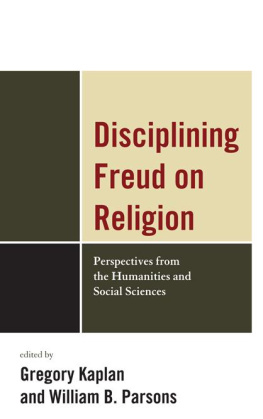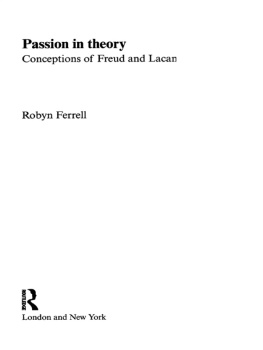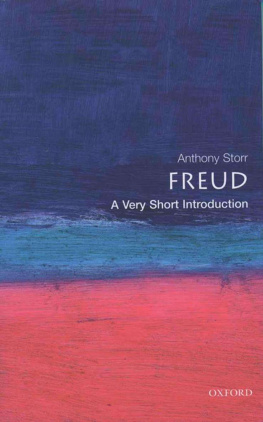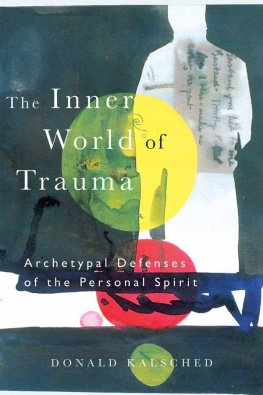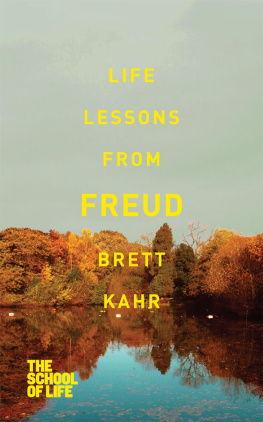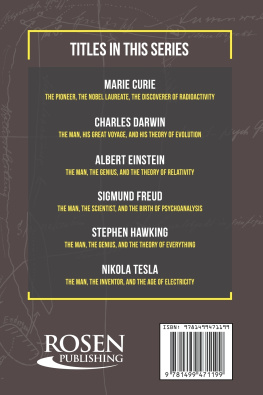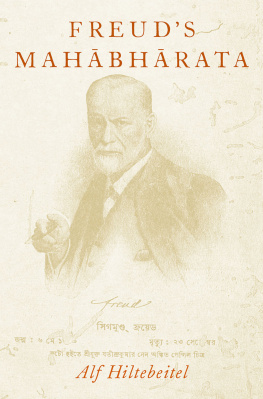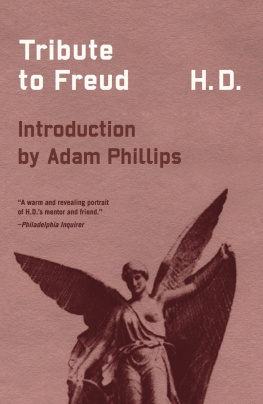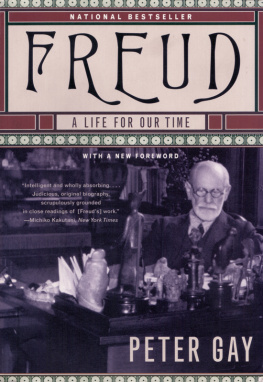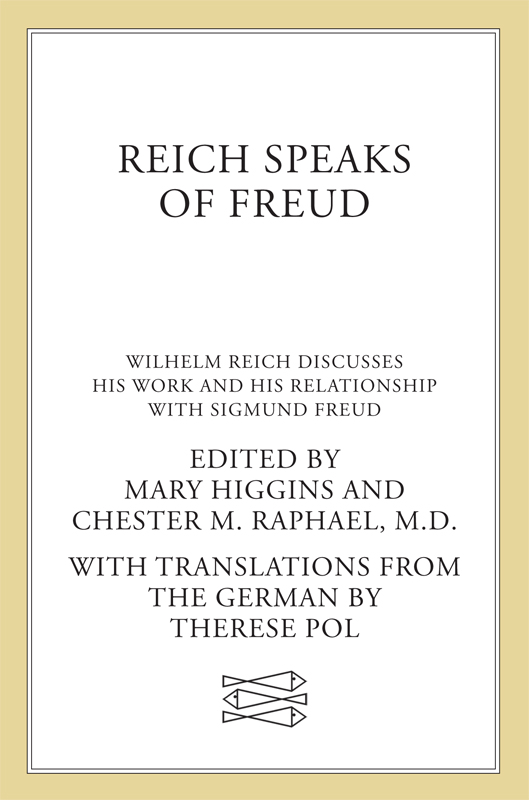
The author and publisher have provided this e-book to you for your personal use only. You may not make this e-book publicly available in any way. Copyright infringement is against the law. If you believe the copy of this e-book you are reading infringes on the authors copyright, please notify the publisher at: us.macmillanusa.com/piracy.
Contents
Part 1:
Part 2:
I left behind me an age which had finally got hold of a little corner of the Freudian thought system, but had completely thrown overboard Freuds courage to stand alone, his adherence to some basic truth, his penetrating sense of what is right regardlessin other words, the complete abandonment of basic research of human emotions to petty little nuisance considerations such as career, easy money, easy recognition by institutions which owed their very existence to the evasion of the very facts of life they pretended, falsely, to disclose.
WILHELM REICH , 1954
EDITORS PREFACE
The Wilhelm Reich interview, conducted by Kurt R. Eissler, M.D., representing the Sigmund Freud Archives, took place at Orgonon in Rangeley, Maine, on October 18 and 19, 1952. Reich had intended to publish it, but the decision of the editors to do so was more than mere compliance. In our opinion it is an unusually candid document and its publication supplies a long-waited clarification of the relationship between Freud and Reich.
While Reich in many of his writings did refer to this relationship and to the conflict that developed later, the directness and informality of the interview technique has made it possible to elicit the information in a manner that is both simple and concise, and it should have the advantage of placing the reader in a favorable position to determine for himself what was at issue. Those who are unacquainted with the history of this relationshipand, regrettably, most arehave been bombarded with so much slanderous fiction that clarification is urgently needed. It is hoped this interview will fulfill that need.
In view of recent strenuous efforts to eliminate the libido theory, the publication of this interview is unexpectedly timely. For Reich remained steadfast in viewing libido as the core of Freudian theory. His pertinacity, supported by ample clinical evidence of the existence of a sexual energy, eventually led him, unlike Freud, to the laboratory and to the discovery of libido in vitro. In so doing, he inherited the criticism and stigmatization that Freud had previously endured. And more! For with his discovery of a tangible, physical energy, Reich could not provide the same sort of appeasement that the world demanded and received from Freud. Freud capitulated (sublimation, death-instinct, and cultural theories), and gained fame; Reich died in prison.
The fact that Freud did not offer any scientific proof for the libido theory, even though he predicted it would be forthcoming, and the attenuation that resulted from his later speculations, left his disciples with little to sustain them. As a result, they have gradually abdicated, despite some idolatrical lip service in their theoretical discussionsa formal obeisance to the pastand they have offered little, if any, opposition to the concerted effort now being directed against the energy theory, the most viable aspect of Freudian psychoanalysis.
The untenability of their position might have been alleviated by an objective evaluation of Reichs discovery of the Life Energy. It would have furnished them with concrete evidence of a vital force, functioning within the organism, acted upon and influenced by the numerous inner and outer stimuli which are so often improperly invested with primary importance. Instead, they have chosen to remain silent, indifferent, incredulous or contemptuous and, as a result, have been unable to forestall the promulgation of psychologies which have extirpated the soul from the living. They have made cultural adaptation their goal, without stopping to consider that our culture, which is so stubbornly defended, derives from the biopsychic rigidity of the human organism and the authoritarianism it fosters.
According to the adaptationalists, who appear to be most determined to eliminate libido, it is not necessary to posit an energy whose existence can never [italics, ed.] be demonstrated for behavior which is meaningful only in terms of motivation, psychological mechanism and ultimate action. has become the rallying cry of those who labor so assiduously to relegate libido to such an ignominious status.
These critics of Freudian theory have also sought to capitalize on Freuds error in minimizing the role of society in relation to human behavior. They emphasize sociology and conveniently deemphasize sexuality. Ironically, although Reichs emphasis on the magnitude of the influence of society upon the individual caused his break with Freud and his expulsion from the International Psychoanalytic Association, he saw no justification for discarding Freuds libido and remained the only one prepared to defend it.
Although he was never politically oriented, Reich was once violently condemned and, at times, even today, continues to be slandered as a communist because he attached so much importance to the impact of society and saw in Marxist doctrine some basis for hope in bringing about an improvement in the human condition. However, practical communism, as it developed in the Soviet Union, because a monster he termed red fascism; and this fact, in addition to his own experiences as a physician among the masses, convinced him that human structure, molded by authoritarian institutions, is protoplasmically unable to change.
In another ironic twist, the psychologists of the communist countries, who had previously held Freudian theory in utter disdain, now see, in the elimination of libido, a basis for compatibility with psychoanalysis through kinship with our latter-day adaptationalists. Thus a Czechoslovakian psychiatrist cheerfully asserts, If it is true that Freudian statements about instincts and instinctual energy are not essential to Freuds work and can be separated from his empirically based generalizations, I do not see any compelling reasons for Marxists to reject Freud.
Reich never failed to appreciate and express his indebtedness to Freud. In retrospect, he viewed their conflict as a link in the chain of scientific development and, therefore, desirable and even necessary. Throughout this interview, Reich strives to show how essential Freuds formulations were for the clarification he himself sought in clinical matters. For example, Freuds formulation of the negative therapeutic reaction enabled Reich to focus on the problem and to arrive at a biological explanation which is fully in accord with clinical facts, instead of at the futile death-instinct hypothesis, which Freud himself acknowledged was only a speculation.
Reichs disappointment in Freud, for which there was much justification, never led to hatred or rejection. Instead, he came to have a better and higher estimation of Freuds achievement than in those days when I was his worshipful disciple. Even Adler, Jung and Rank are not denied Reichs indebtedness for the inadvertent assistance their theoretical positions provided in his pursuit of a natural scientific basis for the libido theory. (See )
Freud, on the other hand, with his authority, tended to foster a static, finalistic condition for psychoanalysis. Anyone who opposed him was considered heretical and no longer part of psychoanalysis. This encapsulation of Freudian theory, and the desire to make it socially acceptable, has tended to deprive it of its historical importance as a foundation for the growth and development which should have been expected of psychoanalysis as a science.


